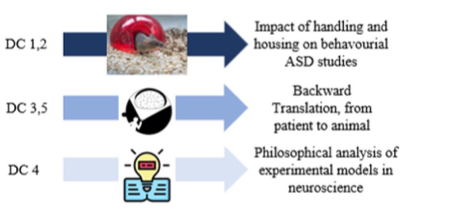The goal of this work package is to improve the quality and relevance of mechanistic studies by broadening their focus to include surrounding factors, instead of focusing on mechanisms only.
This will be achieved through measurable steps within each subproject with the aim to enhance animal and cell culture models to better reflect real-world conditions and incorporating interdisciplinary perspectives for better model selection and use.
The objective is to improve model accuracy and translational potential within the defined timeline of the project.
The primary aim is to shift away from narrow, single-focus mechanistic studies and instead consider the broader context. This involves reflecting on and possibly adapting study conditions, clarifying model features, and making choices based on interdisciplinary and translational goals.
The work package focuses on mechanistic studies in model systems like animals and cell cultures, with the intention of developing more naturalistic models over time. Each project will start with current, advanced models to address specific research questions (e.g., operationalizing behavior in animal models for ASD or backward translation in MS).
The overarching approach will add a contemporary, metalevel perspective, expanding views on the models and how they are selected, with an emphasis on improving their design and relevance.
This work package includes work performed by doctoral candidates at Radboud University under the supervision of Lisa Genzel, at Stichting Amsterdam UMC under the supervision of Linda Douw, at University of Copenhagen with Sara Green and at the University of Porto in the group of Patricia Monteiro, with secondments and interactions throughout the network and associated partners.
The work package involves collaboration between neuroscientists and philosophers of biology to promote critical discussion on experimental design and translation, as well as dissemination of insights from these practices to wider academic and non-academic audiences.
